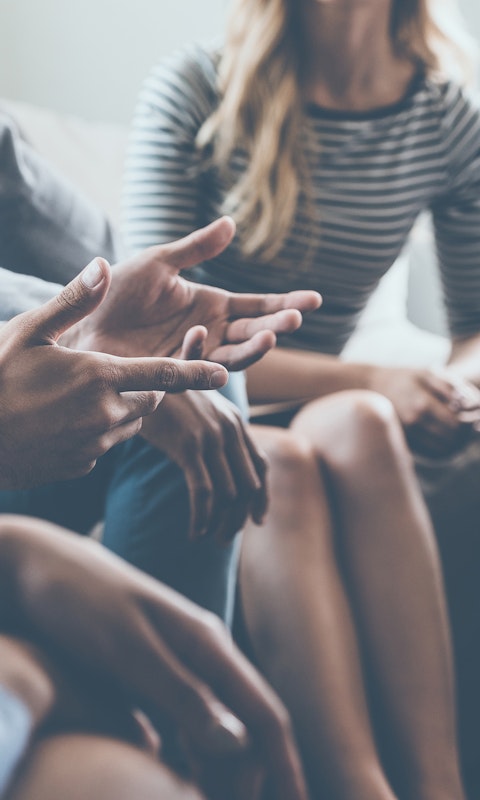
 Support us
Support us

We have developed a free online program specifically for family and friends supporting someone who has attempted suicide.
Suicide is a major issue of community concern throughout Australia and here locally in Newcastle and the Hunter.
We know that over 3,000 people take their lives each year across the country and this issue is getting more attention and more focus than ever before. But what is less known and less talked about, is the number of people who attempt suicide each year and the impacts that this behaviour has on those individuals and the loved ones who care for them.
As a conservative estimate over 65,000 Australians make a suicide attempt each year. These individuals can experience a range of physical, psychological, emotional and social challenges following the event and are at much higher risk of a further attempt or death by suicide.
For a person who has recently attempted to take their own life, the days and weeks following can be a stressful and emotional time.
But it’s important to note that it is also a difficult and emotional time for those who love and care for the person. Feelings such as anger, fear, shock and questioning why the suicide attempt has occurred are commonly experienced by close family and friends.
And while there has been progress on ensuring better supports for people following a suicide attempt, like the Way Back Support Service being run between Hunter Primary Care and the Calvary Mater Hospital, less focus locally or nationally has been given to supporting families, friends and carers.
We know that for many people with health or mental health problems, most of the practical and emotional day-to-day support is provided by family and friends. The same is true for those who are recovering from a suicide attempt, yet partners, parents, sibling, friends and colleagues are largely left unsupported by our services.
Family members often have a list of many unanswered questions about the suicide attempt, how to navigate the myriad of services and professionals that exist in the community to support suicidal individuals, and are also most likely in need of support themselves.
Following a national consultation with people who had attempted suicide and their loved ones, the Hunter Institute of Mental Health has worked with local service providers and local community members to co-design and pilot a new approach to bring support to those who need it.
In partnership with Relationships Australia, a new ‘first of its kind’ support program is now available in Newcastle for anyone who is caring for or supporting someone recovering from a recent suicide attempt. Guiding Their Way Back Support Groups are free for anyone in the local community with the option of a one-off information session or an additional four week small group program where people can get further information, learn skills and receive support from others.
The program has been designed with people who have lived experience of a suicide attempt and includes skill-building on how to manage difficult conversations with their loved ones, tips on how to care for themselves during this very stressful time, and information on where and how to access support services. This new local program will provide immediate information and support to family members, friends and carers locally, but will also be used as a prototype for a vitally needed national service.
We need to set the message to all people affected by a suicide attempt that they are not alone, that things can change and that life can be different.
For information on when and where you can find a Guiding Their Way Back Support Group, please contact the local branch of Relationships Australia NSW on (02) 4940 1500.
By Victoria Clack, Senior Project Officer, Hunter Institute of Mental Health
For immediate help 24/7:
Suicide Call Back Service: 1300 659 467
Lifeline: 13 11 14
Kids Helpline: 1800 551 800
MensLine Australia: 1300 789 978
Published: 11 July 2017